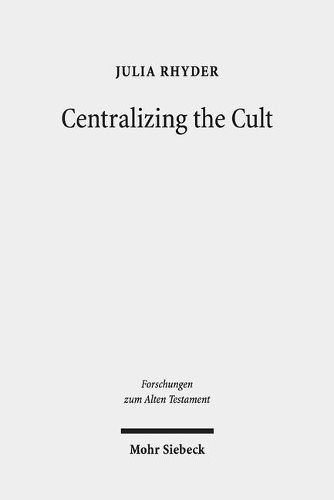Readings Newsletter
Become a Readings Member to make your shopping experience even easier.
Sign in or sign up for free!
You’re not far away from qualifying for FREE standard shipping within Australia
You’ve qualified for FREE standard shipping within Australia
The cart is loading…






In this work, Julia Rhyder provides new insights into the relationship between the Holiness legislation in Leviticus 17-26 and processes of cultic centralization in the Persian period. The author departs from the classical theory that Leviticus 17-26 merely presume, with minor modifications, a concept of centralization articulated in Deuteronomy. She shows how Leviticus 17-26 use ritual legislation to make a new, and distinctive case as to why the Israelites must defer to a central sanctuary, standardized ritual processes, and a hegemonic priesthood. This discourse of centralization reflects the historical challenges that faced priests in Jerusalem during the Persian era: in particular, the need to compensate for the loss of a royal sponsor, to pool communal resources in order to meet socio-economic pressures, and to find new means of negotiating with the sanctuary at Mount Gerizim and with a growing diaspora.
$9.00 standard shipping within Australia
FREE standard shipping within Australia for orders over $100.00
Express & International shipping calculated at checkout
In this work, Julia Rhyder provides new insights into the relationship between the Holiness legislation in Leviticus 17-26 and processes of cultic centralization in the Persian period. The author departs from the classical theory that Leviticus 17-26 merely presume, with minor modifications, a concept of centralization articulated in Deuteronomy. She shows how Leviticus 17-26 use ritual legislation to make a new, and distinctive case as to why the Israelites must defer to a central sanctuary, standardized ritual processes, and a hegemonic priesthood. This discourse of centralization reflects the historical challenges that faced priests in Jerusalem during the Persian era: in particular, the need to compensate for the loss of a royal sponsor, to pool communal resources in order to meet socio-economic pressures, and to find new means of negotiating with the sanctuary at Mount Gerizim and with a growing diaspora.